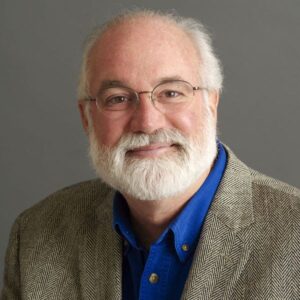 I just finished reading an incredible book by Father Gregory Boyle, a Jesuit priest who has served the poorest Catholic parish amidst the highest concentration of gang activity in the Greater Los Angeles Area for over 30 years. Having witnessed the devastating impact of gang activity, Father Greg, his parish, and community members launched an organization to work with those who had been left behind with no hope. Starting in 1988, they put the welcome mat out for former gang members, helped them deal with substance abuse, removed tattoos, and provided gainful employment and training. They also offered critical services to community members in need.
I just finished reading an incredible book by Father Gregory Boyle, a Jesuit priest who has served the poorest Catholic parish amidst the highest concentration of gang activity in the Greater Los Angeles Area for over 30 years. Having witnessed the devastating impact of gang activity, Father Greg, his parish, and community members launched an organization to work with those who had been left behind with no hope. Starting in 1988, they put the welcome mat out for former gang members, helped them deal with substance abuse, removed tattoos, and provided gainful employment and training. They also offered critical services to community members in need.
Today, Homeboy Industries is the largest gang rehabilitation and re-entry program in the world. Their organizational model has become the blueprint for over 400 organizations worldwide. They share a common mission in “hope, training, and support to formerly gang-involved and previously incarcerated people, allowing them to redirect their lives and become contributing members of our community.”
Tattoos on the Heart: The Power of Boundless Compassion bears witness to Father Greg’s ministry and the individuals who cross the threshold of his open door and open heart. For those among us whose only exposure to gangs comes through mass media, it’s a heartbreaking read. Scads of young people in his backyard grew up amidst absentee (often incarcerated) parents, economic hardship, substance abuse, violence, and precious little (if any) tenderness, understanding, or love. Some managed to find a way out of “the life” and recapture their humanity and sense of worth. Some left this world early in random acts of violence. Others were cut down on the brink of a new and productive life. Again – heartbreaking… and unimaginable.
Suffice it to say, I have tremendous respect for Father Greg and his commitment to this community. But I can’t help but wonder: What gives him the strength to pursue this mission year after year when the toll it takes on the heartstrings must be terrible?
As a man of faith, Father Greg finds inspiration in the life of Jesus Christ, a man who consistently located his ministry among folks on the margins. It was not about being in service to them; it was about his abiding love and compassion for their suffering. As Father Greg says:
“Compassion is not a relationship between the healer and the wounded. It’s a covenant between equals… a shift from the cramped world of self-reoccupation into a more expansive place of fellowship, of true kinship. We are bound together.”
He references the Sermon on the Mount in which Jesus offers nine Beatitudes. Father Greg tells us that this list of blessed ones is not so much a recounting of those favored in God’s sight. Rather, it’s a prescriptive for where disciples of Jesus should locate themselves – amidst the poor, the mourners, the meek, the merciful, the pure in heart, the peacemakers, the persecuted, and those who follow Jesus’ example. Father Greg simply heeds that call, even when it’s painful to do so.
When looking past Homeboy Industry’s services and advocacy, a common theme emerges: the healing power of love, compassion, and kindness. In and through relationship, folks discover that they are valued and valuable. They discover their own light and realize that they are right and true and wholly acceptable just as they are. They are exactly what God intended when God made them – talented, gifted, good. Resilience comes from being grounded in this fundamental truth.
Father Greg used a metaphor for helping others that resonated with me. He casts the helper as one who has a flashlight in a dark room. The helper can illuminate light switch, but the one who wishes to come out of darkness must flip the switch and realize that light is better than dark. In the spirit of mutuality, one may wield the flashlight this time but be the one who needs it the next.
A final thought ties it all together: “If kinship were our goal, we would no longer be promoting justice, we would be celebrating it.” Our circle of compassion would be inclusive. We would belong to one another and feel our worth.